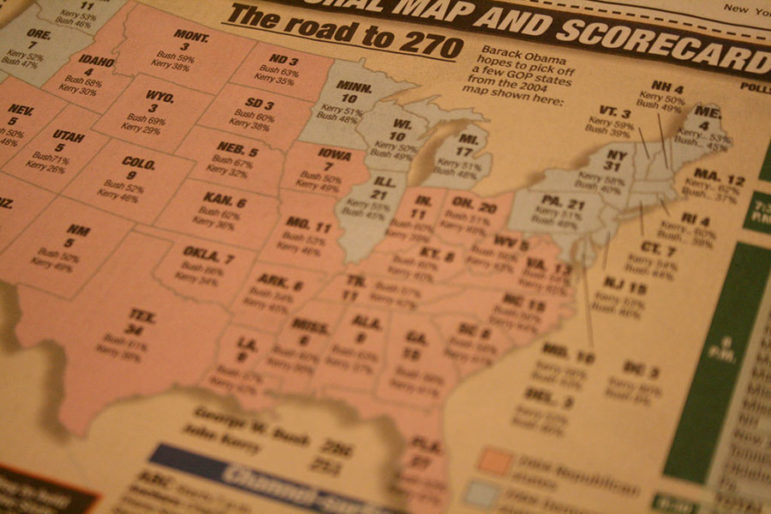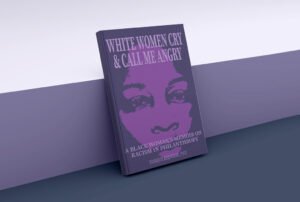
Lawrence Lessig, a Harvard law Professor and former candidate for the presidency, has organized an effort called The Electors Trust, which is offering pro-bono legal consultation to any member of the electoral college who wants to vote for a candidate other than the one to whom they are pledged. (The effort is apparently aimed at providing options for those pledged to Trump but the website makes no such distinctions.) The Trust, a project of a group called CitizenEquality, “a non-partisan, non-profit that is in the process of being established” with an implied mission to abolish the Electoral College, according to its website, will provide a way for electors to explore their options in a confidential setting, opting in publicly only if and when the strategy has a shot of working.
Rick Cohen wrote about Lessig’s short-lived presidential candidacy in 2015:
For most people, he is at best an obscure Harvard law school professor who would be unknown to them but for the news reports today announcing his presidential candidacy. But for nonprofits and good government activists, Lessig is a significant and widely known player. Once a sort of Republican/libertarian, Lessig evolved into a Democrat whose major contribution to political discourse in recent years has been an unrelenting focus on the corrupting influence of money in politics. His widely read book, Republic, Lost: How Money Corrupts Congress—and a Plan to Stop It, takes aim at money entering the political realm from corporations and secret dark money organizations.
This new project diverges somewhat from Lessig’s usual course of work. He has organized a California-based law firm, Durie Tangri, to provide counsel to electors wishing to vote their consciences. The Electors Trust website promises the following to electors who choose to confidentially participate as they weigh their options:
The Electors Trust will defend your right to exercise your “independent and nonpartisan judgment.”
We will defend you against any fines or legal claims that might threaten the freedom of your vote.
If you are an Elector, we will also allow you to know how many others like you there are. How many, not who. Because we will never reveal any Elector’s views, to anyone, ever.
Lessig says the platform will also offer a space wherein such electors can strategize the kind of resistance that would have a chance of working. “It makes no sense to be elector number five who comes out against Trump,” said Lessig. “But it might make sense to be elector 38.”
One Republican elector, Chris Suprun of Texas, has published an op-ed in the New York Times to announce his intent to vote against Trump on December 19th. It concludes:
Sign up for our free newsletters
Subscribe to NPQ's newsletters to have our top stories delivered directly to your inbox.
By signing up, you agree to our privacy policy and terms of use, and to receive messages from NPQ and our partners.
The election of the next president is not yet a done deal. Electors of conscience can still do the right thing for the good of the country. Presidential electors have the legal right and a constitutional duty to vote their conscience. I believe electors should unify behind a Republican alternative, an honorable and qualified man or woman such as Gov. John Kasich of Ohio. I pray my fellow electors will do their job and join with me in discovering who that person should be.
Fifteen years ago, I swore an oath to defend my country and Constitution against all enemies, foreign and domestic. On Dec. 19, I will do it again
There are also eight Democratic electors working to lobby their Republican counterparts to reject Trump in favor of another candidate. The name of Ohio Gov. John Kasich is coming up in this context, though Kasich has already demurred.
Democrats involved in the effort have branded themselves “Hamilton Electors,” and their intent is to get commitments from the 36 other Republicans needed to send the question on to the (Republican-dominated) House of Representatives. There is already another team of lawyers involved with the Hamilton Electors, preparing legal challenges aimed at challenging the laws in 29 states that seemingly bind electors to their party’s nominee.
Some of Lessig’s colleagues are not appreciative of his strategy, with Theda Skocpol calling it “massively stupid” according to the Harvard Crimson.
Democracy requires that both sides play by a common set of rules, many of which are unwritten,” (Michael J.) Klarman wrote. “And one of those rules in our society is that we have a popular vote, within each state, which determines how that state’s electoral votes are cast. Democrats shouldn’t abandon that rule just because they lost.”
[Harvard] Law School professor and constitutional scholar Laurence H. Tribe (’62) wrote in an email that he agreed, to some extent, with Lessig, but wrote that “eliminating the electoral college would remove that important safeguard against electing someone who would endanger the constitution.”
This last refers to the role of the Electoral College in preventing the nation’s population from going temporarily off the rails and electing an entirely inappropriate candidate, one “outside the bounds of reasonable judgment.” One could argue—and Lessig is arguing—that in this case the popular vote was far less likely to be described that way than the currently projected electoral vote.












